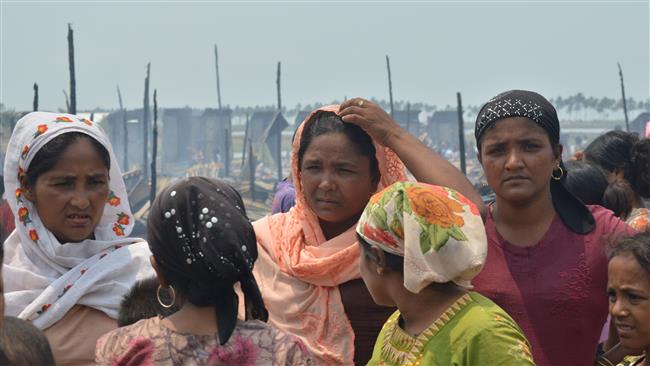
Rasa - "The new leadership must now overcome discrimination, ensure equality and promote inclusive development for all, with full respect for human rights," Ban said on Monday on the eve of a visit to Myanmar.
The UN chief made the remarks as some 140,000 people, mainly Muslim Rohingyas, have been trapped in grim displacement camps since they were driven from their homes by waves of Buddhist violence in 2012.
Ban will arrive in the Buddhist-majority country on Tuesday to address a peace conference aimed at bringing ethnic groups to the table and put an end to decades of fighting.
On June 20, the UN human rights office said Rohingyas in the Southeast Asian country were subject to multiple and aggravated forms of human rights violations, including citizenship denial, forced labor and sexual violence.
The world body said it had found "a pattern of gross human rights violations against the Rohingya... (which) suggest a widespread or systematic attack... in turn giving rise to the possible commission of crimes against humanity if established in a court of law.”
The UN also called on Aung San Suu Kyi’s government to launch an independent and comprehensive investigation into all rights abuses against Rohingya Muslims.
Rakhine state is home to the Rohingya Muslim minority, who are labeled “Bengali” by hardline Buddhists. Many government officials brand the Rohingya Muslims as illegal immigrants from Bangladesh even though many can trace their ancestry back generations in Myanmar.
A large number of Rohingyas are believed to have been killed and tens of thousands displaced in attacks by extremists who call themselves Buddhists. The violence against Muslims struck central Myanmar and Rakhine when the army began loosening its stranglehold on the country in 2011.
The violence against Muslims triggered an influx of refugees into neighboring countries, namely Thailand, Malaysia and Indonesia.
111/847/C